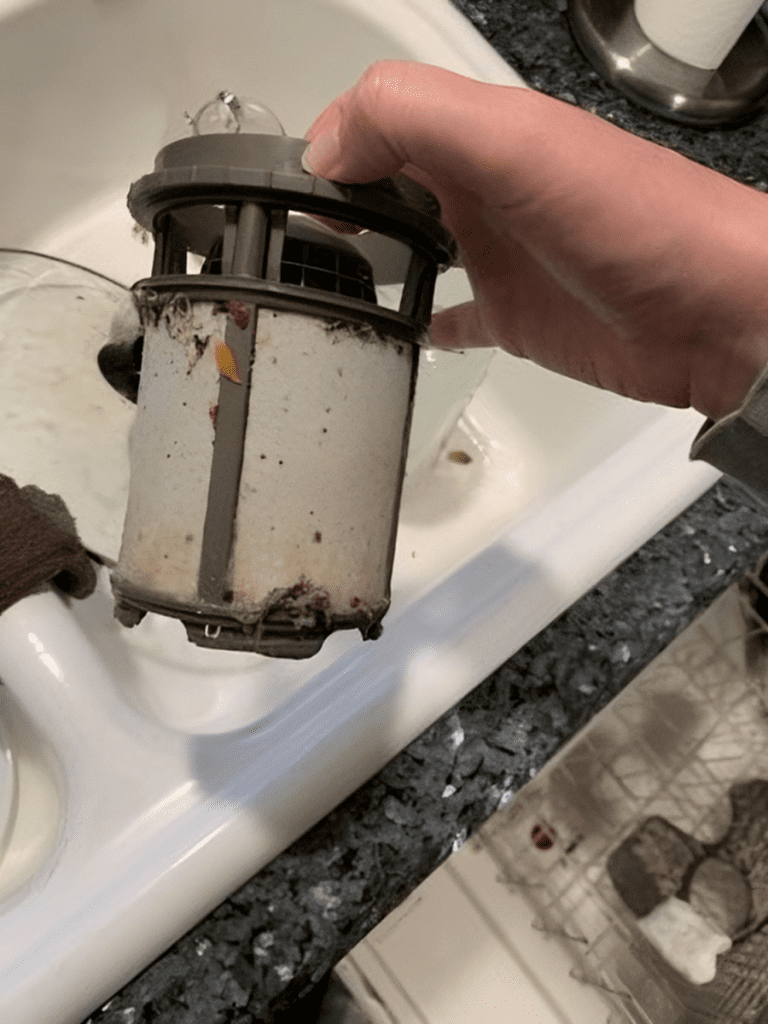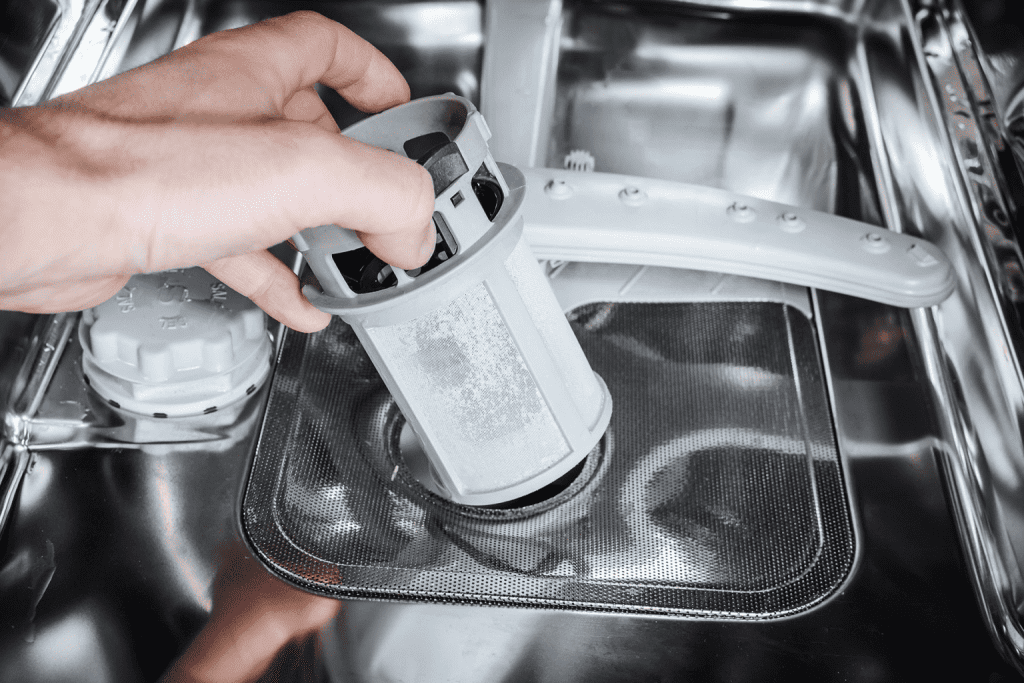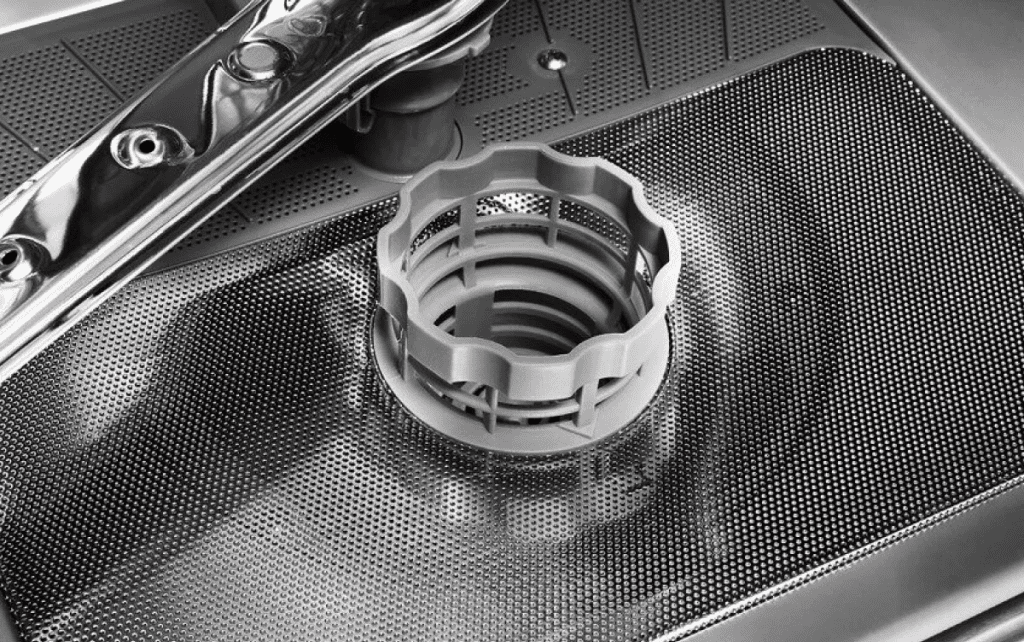Maintaining your dishwasher is crucial for keeping it running smoothly, and one of the most essential tasks is regularly cleaning the dishwasher filter. A clean filter ensures that your dishwasher operates at peak efficiency, removing food particles and debris effectively from your dishes. Neglecting this simple maintenance task can result in unpleasant odors, poor cleaning performance, and even damage to your machine over time. In this article, we’ll explore when and how to clean your dishwasher filter to extend your appliance’s life and ensure spotless dishes with every wash.

Why Cleaning Your Dishwasher Filter is Important
Your dishwasher filter plays a crucial role in trapping food particles and debris, preventing them from recirculating onto your dishes. Over time, this filter can become clogged with food scraps, grease, and detergent residue, reducing its effectiveness. If left uncleaned, a dirty filter can lead to several issues, including:
- Unpleasant odors: Food trapped in the filter can begin to decompose, resulting in bad smells inside your dishwasher.
- Poor cleaning performance: When the filter is clogged, water cannot flow freely, reducing the effectiveness of each wash cycle.
- Potential damage: A clogged filter can put additional strain on your dishwasher’s pump, potentially leading to costly repairs or even shortening the lifespan of the appliance.
By regularly cleaning your dishwasher filter, you can prevent these issues and keep your appliance working efficiently.
When to Clean Your Dishwasher Filter
Knowing how often to clean your dishwasher filter depends on how frequently you use your appliance and the types of dishes you wash. As a general guideline, it’s recommended to check and clean the filter at least once a month. However, if you frequently wash heavily soiled dishes, you may need to clean it more often.
Signs Your Dishwasher Filter Needs Cleaning
Here are some clear indications that your dishwasher filter is overdue for cleaning:
- Food particles left on dishes after a cycle: If your dishwasher isn’t performing as well as it should, a clogged filter may be the culprit.
- Slow draining: Water draining slowly from your dishwasher is a sign that debris may be blocking the filter.
- Unpleasant odors: Bad smells from your dishwasher, even after a wash cycle, suggest trapped food particles in the filter.
- Visible debris: If you can see food or grime around the filter, it’s time for a thorough cleaning.
How to Clean Your Dishwasher Filter
Cleaning the dishwasher filter is a simple task that only takes a few minutes but can have a huge impact on the appliance’s performance. Follow these steps to keep your filter in top condition:

1. Turn Off and Unload the Dishwasher
Before starting, ensure the dishwasher is completely turned off and empty. This allows you to access the filter easily without any obstruction.
2. Locate the Filter
Most dishwasher filters are found at the bottom of the appliance, beneath the lower spray arm. Depending on the dishwasher model, you may need to remove the lower rack to get to the filter.
3. Remove the Filter
The filter typically consists of two parts: a cylindrical fine-mesh filter and a flat coarse-mesh filter. To remove it:
- Twist the cylindrical filter counterclockwise to unlock it.
- Gently lift out both the cylindrical filter and the flat filter below.
4. Rinse the Filter Under Warm Water
Rinse the filter under warm running water to wash away any food particles and debris. For stubborn grime, use a soft brush or old toothbrush to scrub the mesh gently. Avoid using harsh chemicals or abrasive scrubbers, as these can damage the delicate filter.

5. Check and Clean the Filter Housing
With the filter removed, check the housing area for any trapped debris or buildup. Wipe the inside of the housing with a damp cloth to remove any lingering dirt.
6. Reassemble and Replace the Filter
Once the filter is thoroughly clean, reassemble it by placing the flat filter back in first, followed by the cylindrical filter. Twist the cylindrical filter clockwise to lock it securely in place.
7. Run a Test Cycle
After cleaning the filter, run a short cycle with the dishwasher empty. This ensures everything is functioning properly and helps flush out any remaining debris.
Tips for Maintaining a Clean Dishwasher Filter
To keep your dishwasher filter clean and prevent major clogs, follow these helpful tips:
1. Incorporate Regular Maintenance
Make filter cleaning a part of your monthly dishwasher maintenance routine. Regularly cleaning the filter will keep your dishwasher running efficiently and extend its lifespan.
2. Inspect After Each Load
After running a cycle, check the filter for large food particles. Removing these immediately can prevent them from hardening and becoming more difficult to clean later.
3. Use the Right Detergent
Using high-quality detergent and the right amount of detergent for your water hardness level can help reduce detergent residue buildup in your filter.

4. Rinse Heavily Soiled Dishes
While modern dishwashers are designed to handle food scraps, rinsing off large or sticky food remnants from plates before loading them into the dishwasher can reduce the strain on your filter and keep it cleaner for longer.
5. Consult Your Dishwasher Manual
Every dishwasher model is slightly different. If you’re unsure where your filter is located or how to remove it, check your dishwasher’s user manual for specific instructions. This will ensure you’re cleaning the filter correctly for your specific model.
Final Thoughts: A Small Task with Big Benefits
Cleaning your dishwasher filter may seem like a minor chore, but it can make a major difference in the performance and longevity of your appliance. By keeping the filter clean, you’ll ensure your dishwasher consistently delivers sparkling dishes while preventing unpleasant odors and costly repairs. Make this simple maintenance task part of your routine, and enjoy the peace of mind that comes with a well-maintained appliance.
Now that you know how to clean your dishwasher filter and when to do it, you can keep your dishwasher running efficiently, saving both time and energy.


